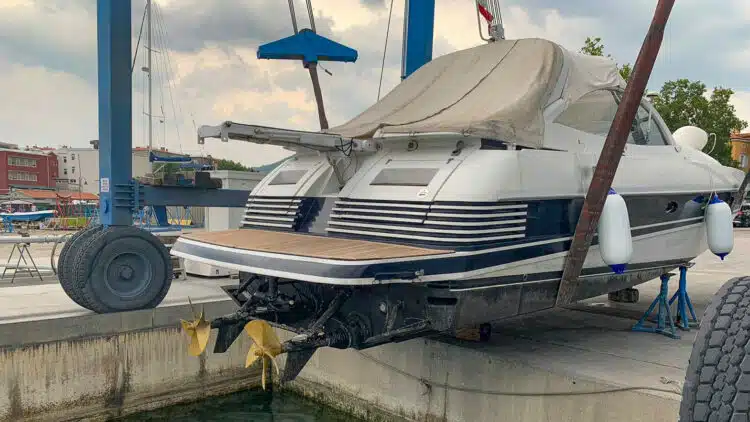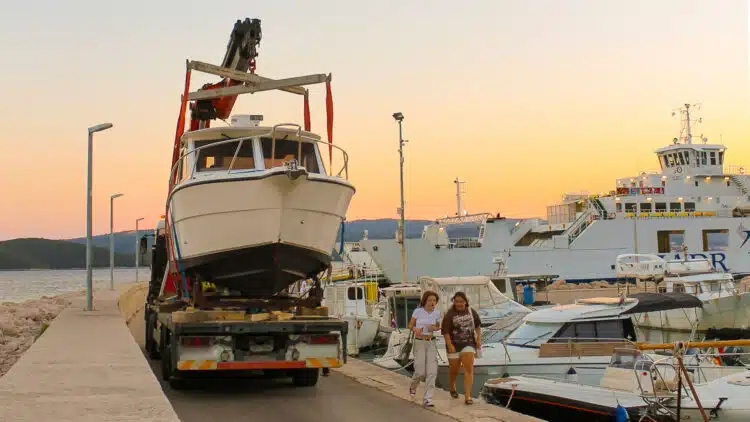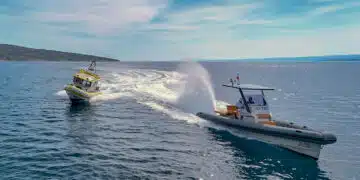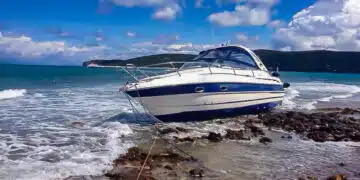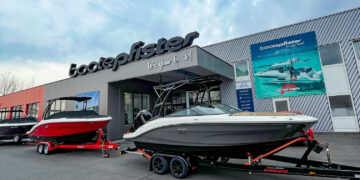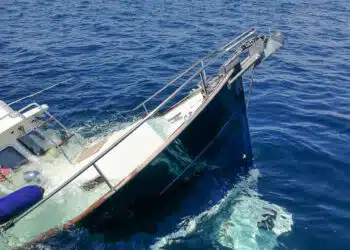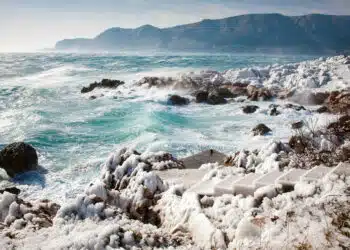When the summer comes to an end, you should already think about the winterization of boats and yachts. In part 1 of our news we devoted ourselves on 14.9.2023 to the topic “Gasoline and diesel don’t last forever“. Today the SeaHelp editorship calls further topics, which should be absolutely considered with the Einwintern of boats yachts, if one does not want to experience a few months later a bad surprise..
Not only the tanks for diesel and gasoline need special attention when winterizing, because fuels do not last forever, contrary to popular belief.
There we pointed out, among other things, that already half a year unused remain in the tank may well be enough to change the fuel properties of gasoline or diesel to such an extent that modern engines can be damaged. Only three months – or rather 90 days – gasoline and diesel should retain their properties in the tank, according to the petroleum industry.
The German Motoryacht Association has published a checklist on the subject of winterizing, in which other important points are mentioned that should be observed without fail if you want to put your floating treasure back into operation undamaged at the start of the next water sports season.
Winterizing begins for many boat owners with the crane – here are some things to consider
Winterizing begins for many boat owners with craning. Here, for safety’s sake, work should be done exclusively with a spreader beam, and it should be checked beforehand whether the load-bearing capacity, condition and length of the securing straps fit or are in order. Information from the manufacturer on the correct positioning of the belts can be helpful here. And: for better securing, the belts should be connected to each other to prevent slipping.
The encoders should be replaced with dummy plugs, and the boat should be placed on the keel first – only then should the props be carefully rotated to the hull. In the case of boats with a standing mast, it is essential to ensure that they are strengthened to prevent them from falling over (e.g. by securing them to the ground). It has also proved worthwhile to take out insurance against any damage caused by craning.
Other winterizing issues are engine, coolant, antifreeze and propeller
The engine needs special attention when winterizing: first, the oil and filter should be changed, the seawater filter insert and gasket should be cleaned with acid-free grease or petroleum jelly, and the impeller along with the shaft should be removed from the pump housing – you can store both in a clean rag, for example.
Next, the cooling liquid (dual-circuit cooling) should be checked; if necessary, liquid should be topped up. When filling or topping up antifreeze, the engine should be started and left running. The timing belt should be checked – and replaced if damaged. For Z- or Saildrive it is recommended to replace the sealing collars if necessary.
Furthermore, the propeller should be removed from the boat and cleaned, and the shaft should be lubricated. For boats with a shaft system, the shaft clearance in the stern tube and at the shaft bracket should now be checked. Used gear oil should be drained and new filled.
Note: if the color of the oil is no longer honey-colored/transparent, but rather milky, a mechanic should absolutely be contacted, because water has penetrated into the gearbox. If you don’t check your transmission oil in the fall, you risk a total loss due to possible corrosion.
Sea-Help tip for winterizing watermakers: the water treatment circuit can also be preserved with “vodka”. In the spring, run the extracted water into the sea for half an hour, and then operation can resume normally. Sacrificial anodes should also be checked on this occasion – and if necessary, replaced immediately.
Fuel tank, on-board batteries and water-carrying fittings also require attention
Next, the fuel tank should be drained; for safety, all filters as well as filter inserts should also be replaced. To save the boat, the fuel, mixed with fuel additive (note: run the engine once before) should be left in the tank to prevent the formation of flammable gases and condensation.
Important: the permissibility of this procedure should be clarified in advance with the winter storage operator.
The on-board batteries also require special attention: first, the on-board batteries (in charged condition) should be disconnected. Cables and terminals should be checked and replaced immediately if damaged. The terminals should be cleaned and then greased. Batteries should be stored in a dry, frost-free place and recharged at least once a month.
Special care should be taken with water-carrying fixtures. Water tanks and lines should be emptied now. Some antifreeze should be poured in and pumped through the entire circuit. Also be sure to drain any watermakers and hot water heaters that may be present.
An issue not to be neglected is the safety of the boat in winter storage
Key point security: boat owners should choose a secure winter storage facility, preferably equipped with exterior lighting and motion detectors. In addition, all valuables, as well as nautical items, such as plotters, GPS and life jackets, should be removed from the boat. It is also recommended that items such as batteries, tanks, tools and the like not be left on board.
Finally, the boat should always be locked, even and especially in winter storage. Also the trailer, on which the boat stands in winter, should be absolutely secured against unauthorized removal (see already our news on the topic “Trailern, aber richtig: Part 1, Part 2“). If the boat has a stainless steel propeller, it should be removed and stored separately for safety.
Finally, the German Motoryacht Association advises checking on the boat regularly. If a break-in is detected, appropriate action should be taken immediately (inform the police and, if necessary, the insurance company).
Those who proceed in this way can look forward to the coming water sports season without any worries, because – secured in this way – there will be no “nasty surprises” when the boat is wintered out.



